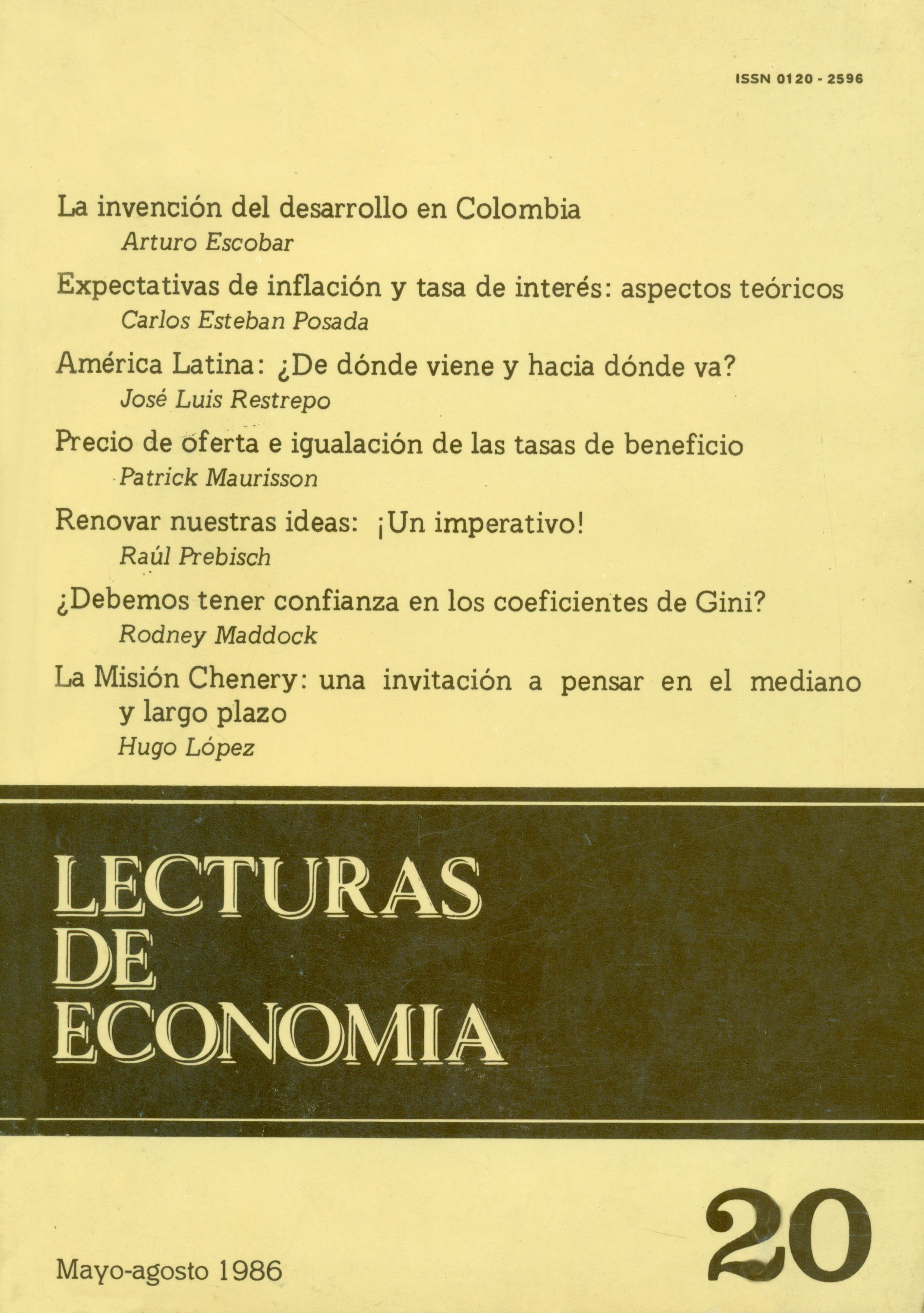¿Debemos tener confianza en los coeficientes de Gini?
DOI:
https://doi.org/10.17533/udea.le.n20a8006Abstract
• Resumen: Existe una metodología [Blackorby y Donaldson (1978)] para investigar las propiedades éticas de índices que miden la desigualdad de una distribución de ingreso. Su aplicación sugiere que el índice de Gini no es igualitario y sufre otras características no deseables. Índices del tipo propuesto por Atkinson (1970) son más adecuados. Pueden ser calibrados para un nivel deseado de sensibilidad de desigualdad, penalizan más las redistribuciones contra los más pobres en situaciones de sustancial desigualdad y tienen implícitas curvas de indiferencia que son continuas. Un índice de esta clase, el de Shorrocks (1980), tiene otra característica adecuada: nos permite hacer una descomposición de la desigualdad total entre sus componentes.
• Abstract: The methodology proposed by Blackorby and Donaldson (1978) allows one to investigate the ethical properties implicit in indices designed to measure distribution. Its application suggests that the Gini index is not especially egalitarian and suffers other deficiencies. Indices of the family proposed by Atkinson (1980) are more adequate. They can be calibrated to the desired level of sensitivity to inequality; they penalize more redistribution against the poor when the initial distribution is unequal, and imply smooth indifference curves. The index of this general class proposes recently by Shorrocks (1980) has the additional benefit that it allows inequality to be decomposed into its constituent parts in an additive way.
Downloads
Downloads
Published
How to Cite
Issue
Section
License
This page, by Universidad de Antioquia, is licensed under a Creative Commons Attribution License.
Authors who publish with this journal agree to retain copyright and grant the journal right of first publication, with the article licensed under a Creative Commons Attribution-NonCommercial-ShareAlike License allowing others to share it as long as they acknowledge its authorship and original publication in this journal.
Authors can enter into separate, additional contractual arrangements for the non-exclusive distribution of the journal's published version of the work (e.g., post it to an institutional repository or publish it in a book), provided that these arrangements be not for profit and the journal be acknowledged as the original source of publication.
Authors are permitted and encouraged to post their papers online (e.g., in institutional repositories or on their websites), as it can lead to valuable exchanges as well as greater citation of the published work.







